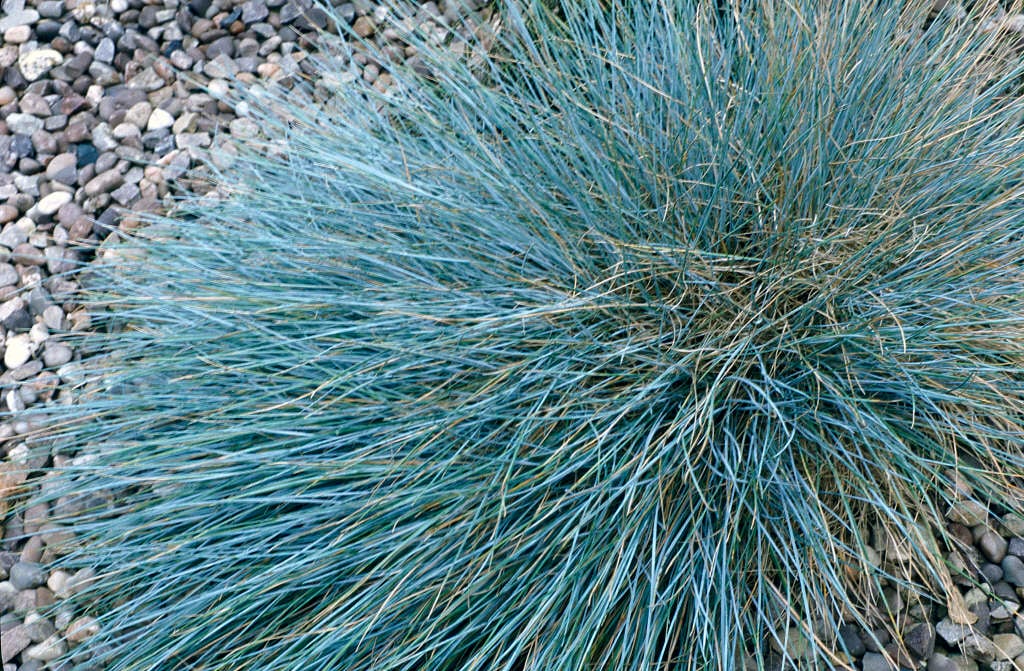Festuca glauca 'Blaufuchs'
blue fescue 'Blaufuchs'
Forms small evergreen cushions to 30cm tall, of very fine bright blue leaves, becoming greener in winter. From late spring to summer it bears narrow, bristly blue-green flower plumes that turn golden-brown
Size
Ultimate height
0.1–0.5 metresTime to ultimate height
2–5 yearsUltimate spread
0.1–0.5 metresGrowing conditions
Moisture
Moist but well–drained, Well–drainedpH
Acid, Alkaline, NeutralColour & scent
| Stem | Flower | Foliage | Fruit | |
| Spring | Blue Grey Silver | |||
|---|---|---|---|---|
| Summer | Blue Green Grey Silver | Blue Grey Silver | ||
| Autumn | Gold Brown | Blue Grey Silver | ||
| Winter | Blue Green Grey Silver |
Position
- Full sun
Aspect
West–facing or South–facing or East–facing
Exposure
Exposed or Sheltered Hardiness
H5Botanical details
- Family
- Poaceae
- Native to GB / Ireland
- No
- Foliage
- Evergreen
- Habit
- Tufted
- Genus
Festuca can be herbaceous or evergreen, rhizomatous grasses with linear, often strikingly coloured, leaves, and dense or lax panicles of brownish flowers in summer
- Name status
Accepted
How to grow
Cultivation
Grow in poor to moderately fertile, well-drained soil in full sun. Clumps tend to die out in the middle, so ideally divide every three years. Further ornamental grasses cultivation advice
Propagation
Propagate by seed sown in pots in a cold frame in spring or by division in spring
Suggested planting locations and garden types
- Rock garden
- Patio and container plants
- Architectural
- City and courtyard gardens
- Coastal
- Cottage and informal garden
- Gravel garden
- Low Maintenance
- Flower borders and beds
- Garden edging
Pruning
Comb out dead foliage and trim damaged parts of older leaves in spring
Pests
Generally pest-free
Diseases
May be susceptible to a rust
Get involved
The RHS is the UK’s gardening charity, helping people and plants to grow - nurturing a healthier, happier world, one person and one plant at a time.
